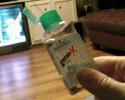To help his clients manage obsessive-compulsive disorder (OCD), practitioner Fred Penzel, Ph.D. put together a list for them—ten things necessary to know for recovering from OCD.
It is a valuable list. Those new to the OCD diagnosis may learn much from it. Veterans of OCD might be reminded of something forgotten.
OCD Recovery: Ten Things Helpful To Know
1. OCD is a chronic disorder. Thus far, there is no cure. Even when symptoms are managed so well they seem to disappear there is always a possibility they will return. It is essential that those with OCD acquire adequate symptom management tools and use them diligently as necessary.
2. Guilt and doubt are the two hobgoblins of OCD. Those with OCD usually have an over abundance of guilt, and tend to feel responsible for things they could not possibly be responsible for.
OCD sufferers are also people riddled with doubt about things such as their sexuality, their perceptions, their sanity, or whether they will lose control and have a tantrum in public. Doubt must be faced and challenged since it cannot be resolved through reassurances or compulsive behaviors.
3. The fears behind obsessive thoughts must be confronted. The only way to know that a fear is unjustified is to stay with it long enough learn the truth—that it will eventually dissipate on its own.
4. CBT (cognitive behavioral therapy) is considered by many professionals to be the best type of therapy for OCD. It teaches people to question the likelihood of their fears coming true and to challenge the fear’s questionable logic.
A behavioral treatment component that frequently helps is E&RP (exposure and response prevention). With E&RP, people are asked to endure whatever is making them anxious to develop tolerance for the fearful thought or environment. Doing this, people learn that when they do not engage in compulsive behaviors, nothing happens—their fears do not come true.
5. Medications alone are not the answer. Drugs can help some individuals reduce their OCD symptoms, but they cannot be relied on as a stand alone treatment for OCD. Those who discontinue medication and have acquired no other means of managing symptoms will most likely relapse.
6. Ultimately, you must learn to rely on yourself to manage the fears and compulsive behaviors. If a person depends on others for reassurance and anxiety management, he or she will be lost when those others are not around. The only person always with us is our self, so our self needs to know how to handle OCD symptoms and situations.
7. Just as we learn to parent ourselves growing up, the goal of therapy is teaching clients to be their own therapist.
8. You cannot rely on your instincts when managing OCD. It is instinctive for humans to escape from fearful situations—such as getting away from a snarling dog. Fearful, obsessive thoughts we may instinctively want to escape using compulsive actions (e.g., hand washing, checking). However, by using instinctive escape actions we do not stay with the fear long enough to find out it is false.
9. Recovering from OCD requires time. Addressing the symptoms of OCD may take six to twelve months, or more. Once symptoms are under control, people may have to work on reorganizing their social and work lives as well.
10. Relapse is a constant, potential risk to guard against. People must maintain their recoveries by using the OCD management tools they acquired to immediately address symptoms that arise, and take their medications as prescribed. Medication change should always be done in collaboration with the doctor.
Source: BeyondOCD.org
Photo credit: Freddie Pena







